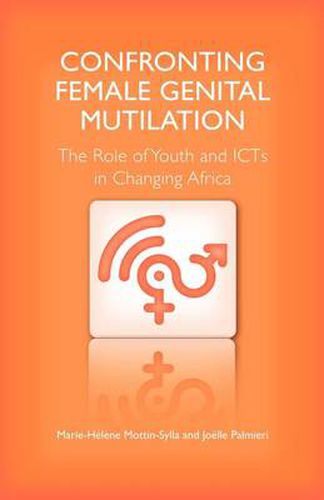Readings Newsletter
Become a Readings Member to make your shopping experience even easier.
Sign in or sign up for free!
You’re not far away from qualifying for FREE standard shipping within Australia
You’ve qualified for FREE standard shipping within Australia
The cart is loading…






It is not possible, in Africa or elsewhere, to think about the issue of female genital mutilation (FGM) - excision - in the same way as 25 years ago. Information and communication technologies (ICTs) are no longer a novelty, and increased access to information and ideas has contributed to wider discussion. Beliefs and practices are shifting, particularly among young people. FGM is no longer the private concern only of women - it is a social and political issue that concerns both men and women. How can we re-examine the impact of 25 years of concerted action aimed at eliminating FGM in Francophone West Africa? Why, how, by whom and for whom has the digital revolution been used over the past 10 years to achieve that end? If young people - both female and male - are the big winners in the digital revolution, how were they involved in this undertaking that concerns them intimately as victims, subjects, objects, actors, citizens, leaders and family and community stakeholders? What gender issues do excision and ICTs raise? Why and how would it be appropriate and even essential to incorporate them into a strategic vision of citizen, public, private and personal development? In this age of the internet, the task of abolishing FGM in Africa and constructing a tradition worthy of being passed on must include young people - whose way of living in this world is by being connected, by moving to and fro between the local and the global. This book reports on an innovative research and action project amongst girls and boys in Burkina Faso, Mali and Senegal to explore whether young people’s use of information technology could contribute to the abandonment of FGM. It shows how, in the era of ‘globalised citizenship’, a cross-sectional vision that puts young people and gender at the centre of development can produce real change.
$9.00 standard shipping within Australia
FREE standard shipping within Australia for orders over $100.00
Express & International shipping calculated at checkout
It is not possible, in Africa or elsewhere, to think about the issue of female genital mutilation (FGM) - excision - in the same way as 25 years ago. Information and communication technologies (ICTs) are no longer a novelty, and increased access to information and ideas has contributed to wider discussion. Beliefs and practices are shifting, particularly among young people. FGM is no longer the private concern only of women - it is a social and political issue that concerns both men and women. How can we re-examine the impact of 25 years of concerted action aimed at eliminating FGM in Francophone West Africa? Why, how, by whom and for whom has the digital revolution been used over the past 10 years to achieve that end? If young people - both female and male - are the big winners in the digital revolution, how were they involved in this undertaking that concerns them intimately as victims, subjects, objects, actors, citizens, leaders and family and community stakeholders? What gender issues do excision and ICTs raise? Why and how would it be appropriate and even essential to incorporate them into a strategic vision of citizen, public, private and personal development? In this age of the internet, the task of abolishing FGM in Africa and constructing a tradition worthy of being passed on must include young people - whose way of living in this world is by being connected, by moving to and fro between the local and the global. This book reports on an innovative research and action project amongst girls and boys in Burkina Faso, Mali and Senegal to explore whether young people’s use of information technology could contribute to the abandonment of FGM. It shows how, in the era of ‘globalised citizenship’, a cross-sectional vision that puts young people and gender at the centre of development can produce real change.